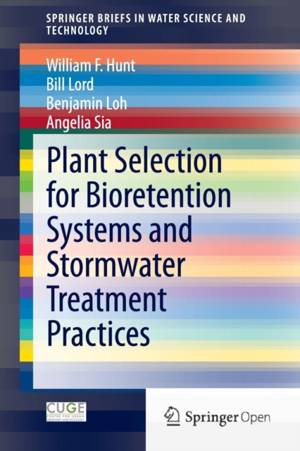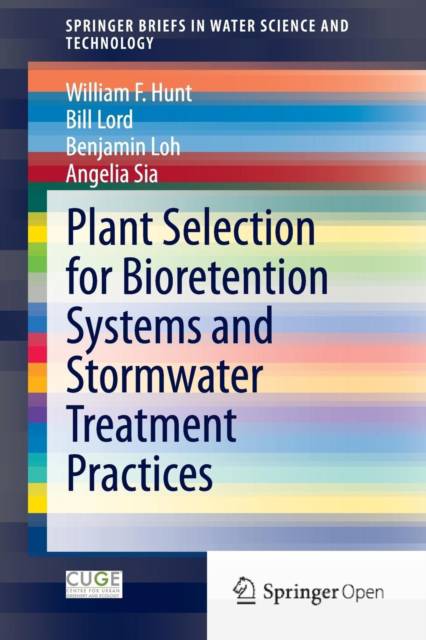
- Afhalen na 1 uur in een winkel met voorraad
- Gratis thuislevering in België vanaf € 30
- Ruim aanbod met 7 miljoen producten
- Afhalen na 1 uur in een winkel met voorraad
- Gratis thuislevering in België vanaf € 30
- Ruim aanbod met 7 miljoen producten
Zoeken
Plant Selection for Bioretention Systems and Stormwater Treatment Practices
William F Hunt, Bill Lord, Benjamin Loh, Angelia Sia
€ 38,45
+ 76 punten
Omschrijving
As cities develop, more land is converted into impervious surfaces, which do not allow water to infiltrate. Careful urban planning is needed to ensure that the hydrologic cycle and water quality of the catchment areas are not affected. There are techniques that can attenuate peak flow during rain events and reduce the amount of metals, nutrients, and bacteria that enter the urban water cycle. This brief gives a short introduction on bioretention systems and documents the effectiveness of some 36 plant species in removing water pollutants. A summary on the maintenance requirements is also presented.
Specificaties
Betrokkenen
- Auteur(s):
- Uitgeverij:
Inhoud
- Aantal bladzijden:
- 59
- Taal:
- Engels
- Reeks:
Eigenschappen
- Productcode (EAN):
- 9789812872449
- Verschijningsdatum:
- 17/11/2014
- Uitvoering:
- Paperback
- Formaat:
- Trade paperback (VS)
- Afmetingen:
- 156 mm x 234 mm
- Gewicht:
- 108 g

Alleen bij Standaard Boekhandel
+ 76 punten op je klantenkaart van Standaard Boekhandel
Beoordelingen
We publiceren alleen reviews die voldoen aan de voorwaarden voor reviews. Bekijk onze voorwaarden voor reviews.











